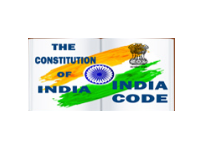The Present System
2.1 Present system of writing Annual Confidential Reports (ACRs), for the All India Services, is governed by the All India Services (Confidential Roll) Rules 1970. These rules provide that a confidential report, assessing the “performance, character, conduct and qualities of every member of the service shall be written for each financial year, or calendar year, as may be specified by the Government”. They also provide that the confidential report shall be written by the reporting authority “in such form as may be specified by the Central Government.”
2.2 The ACR format has undergone several changes over the years. Till 1985, a single form was prescribed for writing the reports of the IAS officers at all levels. This was a simple two page form requiring only a general assessment by the Reporting Officer and a validation of these remarks by the Reviewing Officer. The only other requirements were a comment on the “State of Health”, attitude towards weaker sections, and integrity. All other traits and qualities were to be covered in a descriptive general assessment. There was no requirement of an overall grading, but the Reviewing Officer was required to indicate whether or not the appraisee was “fit”, “not yet fit”, or “unfit” for promotion. The Reviewing Officer was also required to indicate whether the officer had qualities justifying special selection for higher appointment out of turn.
2.3 The performance appraisal is required to be done for each financial year and only an officer who has supervised the performance of an appraisee for a period of at least 90 days is eligible to give his appraisal. The appraisal is entirely confidential, with the exception that “adverse remarks”, if any, are required to be conveyed to the appraisee by the Department of Personnel, giving him an opportunity to represent against such remarks to the cadre controlling authority (i.e. the Government). If his representation is (partly) accepted, the adverse remarks are (modified) expunged. The following are the major changes made in 1985:
- Separate proforma was introduced for three levels, i.e. one for all levels upto the supertime scale; second, for the supertime scale; and third, for officers above the supertime scale.
- Quantifiable targets were required to be set at the beginning of the year, jointly by the Reporting Officer and the appraisee (except for the above super time level).
- A self appraisal was required from the appraisee (except for the above supertime level).
- Upto the supertime level, appraisees were to be reported upon on eight diverse attributes. Those with more than 12 years of service were to be appraised on four additional attributes. At the supertime level the appraise was assessed on a different set of 10 attributes.
- An overall grade had to be recorded (i.e. “Outstanding”/”Very Good”/”Good”/”Average”/”Below Average”) by the reporting officer and validated (or altered) by the Reviewing Officer and Accepting Authority.
- While the broad structure of the proforma was the same for the IPS and IFoS, as for the IAS, there were differences with regard to the specific attributes evaluated, given the differences in the nature of the work of the IPS and IFoS in relation to the IAS.
2.4 The system of appraisal, including the proforma, introduced in 1985 have remained more or less unchanged since then. They were last studied by a committee constituted under the chairmanship of Dr N.C. Saxena, which made the following major recommendations:
- There should be only two sets of forms, with one being applicable for officers up to and including those in the super-time scale and the other applicable to officers in the grade of Additional Secretary to GoI or Principal Secretary to a State Government.
- The self appraisal by the appraisee should be in a highly simplified format where the officer is only required to indicate the highlights of the work done by him. In addition he should be required to indicate when he submitted his last immovable property return and whether he is submitting his self assessment in time. In case of delay in submitting the self assessment, he is required to give reasons.
- In the event of any adverse remark being expunged, the overall grade should also be expunged and the assessing authorities should make an independent assessment of the overall grade by taking into account the remaining portions of the appraisal.
- The appraisal by the reporting officer is also to be in a highly simplified format and may include only an assessment of the appraisee’s performance with regard to his duties and responsibilities and a general assessment of his job relevant attributes. In addition, the reporting officer is required to indicate if the report is being submitted in time and, if not, record reasons for the delay.
- There should be a separate section in which the appraisee could record his training needs. With the comments of the reporting officer, this section should be sent to the Training Division of the DoPT.
- The Joint Secretary (Administration) in the Ministries of the Government of India and the Secretary (Personnel) in the State governments should be made responsible for the timely completion of the ACRs.
- A statutory time limit of 6 months may be considered for disposal of all representations against adverse remarks.
- No report needs to be written in respect of Secretaries to Government of India.
2.5 The recommendations of the N.C. Saxena Committee have not been implemented as it was felt by the GoI that the systems prevailing in other countries also need to be studied.






 कार्मिक एवं प्रशिक्षण विभागDepartment of
कार्मिक एवं प्रशिक्षण विभागDepartment of 













